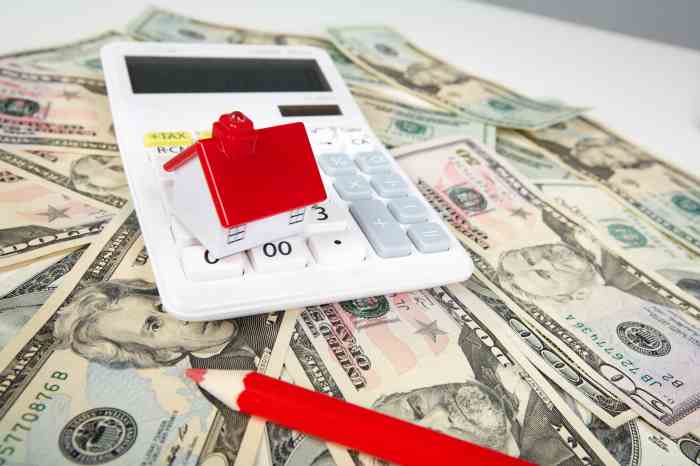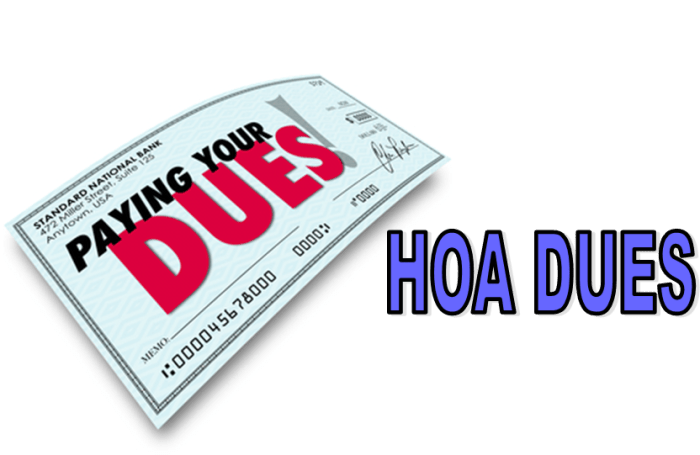In the realm of real estate transactions, the question of “Are HOA dues prorated at closing?” holds significant importance. Understanding the concept and implications of HOA dues proration is crucial for both buyers and sellers to navigate the closing process smoothly and avoid potential disputes.
HOA dues, or homeowners association fees, are regular payments made by homeowners to cover the maintenance and upkeep of common areas and amenities within a community. When a property is sold, the responsibility for paying HOA dues is typically prorated between the buyer and seller based on the number of days each party will own the property during the current billing cycle.
Understanding HOA Dues Proration

Homeowners association (HOA) dues proration is the process of dividing the annual HOA dues into monthly or quarterly payments. This is done to ensure that the association has a steady stream of income throughout the year and that homeowners are not responsible for paying the entire year’s dues upfront.
Prorating HOA dues is beneficial for both the association and the homeowners. For the association, it helps to ensure that there is enough money to cover operating expenses throughout the year. For homeowners, it makes it easier to budget for their HOA dues and avoid large, unexpected payments.
Purpose of HOA Dues Proration
The purpose of HOA dues proration is to distribute the cost of HOA dues evenly over the year. This makes it easier for homeowners to budget for their HOA dues and avoid large, unexpected payments.
Benefits of HOA Dues Proration
- Ensures that the association has a steady stream of income throughout the year.
- Makes it easier for homeowners to budget for their HOA dues.
- Avoids large, unexpected payments for homeowners.
Proration at Closing

Proration of Homeowners Association (HOA) dues at closing refers to the equitable distribution of the financial responsibility for HOA fees between the buyer and seller of a property. It ensures that both parties pay their fair share of the dues for the period they own the property.
Calculation of Proration
The proration calculation involves determining the portion of the annual HOA dues that each party is responsible for, based on the number of days they will own the property during the HOA’s fiscal year.
- Step 1: Determine the HOA Fiscal Year:Identify the start and end dates of the HOA’s fiscal year.
- Step 2: Calculate the Daily HOA Dues:Divide the annual HOA dues by the number of days in the HOA’s fiscal year.
- Step 3: Determine the Number of Days Owned by Each Party:Calculate the number of days the buyer and seller will own the property during the HOA’s fiscal year.
- Step 4: Calculate Prorated HOA Dues:Multiply the daily HOA dues by the number of days owned by each party.
Formula:Prorated HOA Dues = Daily HOA Dues × Number of Days Owned
For example, if the annual HOA dues are $1,200, the HOA’s fiscal year runs from January 1 to December 31, and the closing date is July 15, the proration calculation would be as follows:
- Daily HOA Dues:$1,200 ÷ 365 days = $3.29
- Buyer’s Days of Ownership:179 days (July 15 to December 31)
- Buyer’s Prorated HOA Dues:$3.29 × 179 days = $587.41
- Seller’s Days of Ownership:186 days (January 1 to July 14)
- Seller’s Prorated HOA Dues:$3.29 × 186 days = $611.54
In this example, the buyer would be responsible for paying $587.41 in HOA dues at closing, while the seller would pay $611.54.
Impact on Buyers and Sellers
Proration of HOA dues at closing has significant financial implications for both buyers and sellers. Understanding these implications is crucial for ensuring a smooth and equitable transaction.
Impact on Buyers
Buyers are responsible for paying a prorated portion of the HOA dues for the period from the closing date to the end of the current billing cycle. This amount is typically calculated based on the number of days in the billing cycle that the buyer will own the property.
For example, if the closing date is March 15th and the HOA billing cycle runs from January 1st to December 31st, the buyer would be responsible for paying 74 days of HOA dues (March 15th to December 31st).
Impact on Sellers
Sellers are responsible for paying a prorated portion of the HOA dues for the period from the beginning of the current billing cycle to the closing date. This amount is typically calculated based on the number of days in the billing cycle that the seller owned the property.
Using the same example as above, if the closing date is March 15th and the HOA billing cycle runs from January 1st to December 31st, the seller would be responsible for paying 60 days of HOA dues (January 1st to March 14th).
Factors Affecting Proration
Proration calculations are influenced by various factors that determine the precise amount due or owed by buyers and sellers.
Factors that can impact proration include:
Timing of Closing
The date of closing relative to the HOA billing cycle affects the amount of dues to be prorated. For instance, if closing occurs in the middle of the billing period, the proration will reflect the portion of dues covering the period from the start of the billing cycle to the closing date.
HOA Billing Frequency, Are hoa dues prorated at closing
The frequency of HOA billing also influences proration. If dues are billed monthly, proration will be calculated based on the number of days within the month that the buyer or seller is responsible for. In contrast, if dues are billed quarterly or annually, the proration period will be longer.
Sellers’ Occupancy
The period of time the seller has occupied the property during the current HOA billing cycle affects the proration calculation. If the seller has been occupying the property for a portion of the billing period, they are responsible for that portion of the dues.
HOA Assessment Changes
Changes in HOA assessments, such as increases or special assessments, can impact proration. If an assessment change occurs during the billing period, the proration calculation will reflect the adjusted amount.
Legal Considerations: Are Hoa Dues Prorated At Closing

HOA dues proration is subject to various legal requirements and regulations, which vary depending on the jurisdiction. These regulations typically aim to ensure fairness and transparency in the allocation of HOA dues between buyers and sellers.
Role of the Closing Agent
The closing agent plays a crucial role in ensuring compliance with legal requirements related to HOA dues proration. They are responsible for:
- Calculating the prorated amount based on the applicable rules and regulations.
- Disbursing the prorated amount to the appropriate parties, such as the HOA and the buyer or seller.
- Providing documentation to the parties involved, including a statement of closing costs and a breakdown of the prorated HOA dues.
Best Practices

Establishing best practices for HOA dues proration at closing is crucial to minimize disputes and ensure a smooth transaction. These practices should prioritize transparency, accuracy, and fairness to protect the interests of both buyers and sellers.
One key best practice is to clearly Artikel the proration formula in the purchase contract. This formula should specify the period for which the dues are being prorated, the daily rate of the dues, and any applicable adjustments for partial months or overlapping periods.
Strategies for Minimizing Potential Disputes
- Accurate Calculations:Ensure that the proration calculations are accurate and verified by both parties. This involves carefully reviewing the HOA governing documents, obtaining statements from the HOA management, and considering any applicable grace periods or late fees.
- Timely Communication:Open and timely communication between the buyer, seller, real estate agents, and HOA management is essential. This facilitates the exchange of necessary information, including HOA fee statements, governing documents, and any outstanding assessments.
- Dispute Resolution Mechanism:Establishing a clear dispute resolution mechanism in the purchase contract can help resolve any disagreements that may arise regarding the proration. This mechanism should Artikel the steps to be taken, the parties involved, and the potential remedies available.
FAQ Explained
What is the purpose of prorating HOA dues at closing?
Prorating HOA dues ensures that both the buyer and seller pay their fair share of the dues based on the time they own the property during the current billing cycle.
How is the proration calculation typically performed?
The proration calculation involves determining the number of days the buyer and seller will own the property during the current billing cycle and dividing the total HOA dues by the number of days in the billing cycle to calculate the daily rate.
The daily rate is then multiplied by the number of days each party will own the property to determine their respective proration amounts.
What factors can influence the proration calculation?
Factors that can influence the proration calculation include the closing date, the billing cycle of the HOA, and any outstanding HOA dues or assessments.
What legal considerations are associated with HOA dues proration?
In some jurisdictions, there may be legal requirements or regulations governing the proration of HOA dues. It is important to consult with a qualified real estate attorney to ensure compliance with all applicable laws.